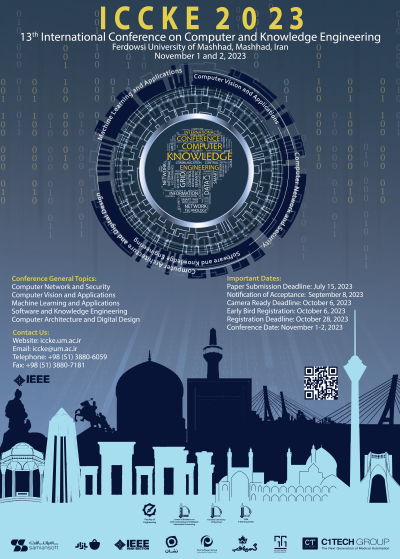0% Complete

Authors :
Keywords :
Abstract :
List of archived papers
Ali Bazghandi
Mobin Vaziri - Hadi Jahanirad
AHMED SAIHOOD - HOSSEIN KARSHENAS - AHMADREZA NAGHSH NILCHI
Nazgol Nikravesh - Mohammad Reza Keyvanpour
Jamileh Azmoudeh - Sajjad Arghaee - Parisa Valizadeh - Samaneh Dandani - Iman Havangi - Mohammad Hossein Yaghmaee
Mehdi Amininasab - Ahmad Patooghy - Mahdi Fazeli
Benyamin Mirab Golkhatmi - Mohammad Hossein Moattar
Zahra Aghaee - Afsaneh Fatemi
Amir Masoud Heidari Orojloo - Morteza Keshtkaran
Sadegh Sohani - Farnaz Kamranfar - Haleh Amintoosi - Mohammad Allahbakhsh




